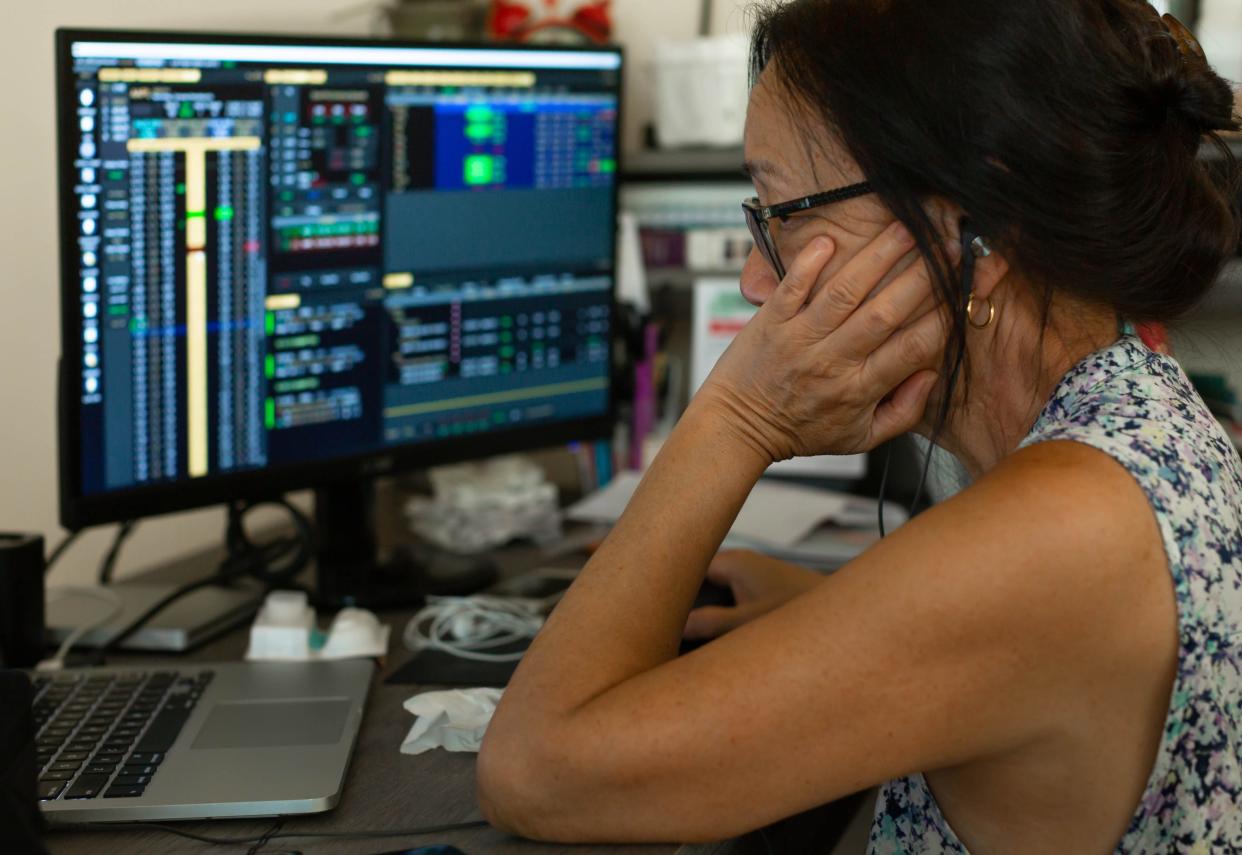Your tax refund is likely higher than last year. Should you invest it?
Americans are getting heftier tax refunds this year. So far refunds are averaging $3,226, that's 11.5% higher compared to last year, according to IRS data.
Personal finance experts encourage people to use the money to pay off debt, boost emergency savings and contribute to retirement accounts, especially as the Fed prepares to raise interest rates more aggressively.
But if you're fortunate enough to have sufficient savings and minimal debt, here are a few things to consider about investing your refund in the stock market.
Advantages of investing your tax refund
"The main advantage to investing is the potential to grow your money at a much faster rate than having it sit in cash in a traditional bank account," said Nancy DeRusso, head of Financial Wellness at Goldman Sachs Ayco Personal Financial Management. "It gives you the ability to save for a longer time horizon such as a child’s college education or retirement."
SAVE IT OR USE IT?: Tax refunds are delayed but plan now to invest or splurge
2022 TAX GUIDE: Key dates for filing and extensions, claiming credits and planning for refunds
But not everyone should jump into the stock market, said Buffie Purselle, founder of Buffie, LLC, a personal finance advisory firm.
People who may be tempted to sell too quickly in response to a short-term market dip, might want to rethink investing their tax refund in the market.
"That defeats the purpose of investing," said Purselle, who wrote "Crawl Before you Ball," a self-help book about how to become more financially literate.
Disadvantage: You may have to pay a capital gain tax
Consider whether you'll need immediate access to your cash before investing, advises DeRusso.
Savings accounts allow you to withdraw funds anytime, whereas funds invested in the stock market "are not as readily available," said DeRusso.
"If your goals or priorities change and you need to access your money, it can take time to liquidate investments and you could be subject to taxes due on any growth."

INVESTING TAXES: Boom in cryptocurrency, stock market triggers explosion in taxable gains
EMANCIPATION DAY: Why is Tax Day on April 18? You can thank this DC holiday
In general, if you sell a stock that you've owned for less than a year and it appreciated, your gain will be taxed at the same rate as your income.
If you had a gain and sold it after a year, you'd pay a 15% tax or less depending on your income.
Consider market risk
If losing your refund in the stock market won't mean you'll be late on a rent payment or result in racking up more credit card debt, then you should "get into the risky stuff," Purselle said.
One area to consider if you're interested in taking the high-risk, high-reward investment route is semiconductor stocks, said Chris Zaccarelli, chief investment officer for Independent Advisor Alliance.
BEST INFLATION INVESTMENTS: An adviser studied 95 years of returns to find an answer
2022 RECESSION?: Is the U.S. headed for a recession? This Wall Street bank thinks so.
"The world is increasingly using more chips, whether in electric vehicles, traditional vehicles, data centers for cloud computing, or cell phones — they’re all going to require more chips," he said.
But semiconductor stocks may be best as a long-term investment since the economy could be headed for a recession in the near future, he said. That would likely push stocks down.
"If that happens, then stock prices can go even lower from here and that is what will contribute to even more volatility in the short run," Zaccarelli told USA TODAY.
"At the end of the day, the decision to invest comes down to one’s personal goals and priorities," DeRusso of Goldman Sachs said. "If the goal is to be debt-free, the reduced stress and freedom from ongoing monthly payments may outweigh the potential higher investment return."
Elisabeth Buchwald is a personal finance and markets correspondent for USA TODAY. You can follow her on Twitter @BuchElisabeth and sign up for our Daily Money newsletter here
This article originally appeared on USA TODAY: IRS: Refunds are higher but should you invest it?
